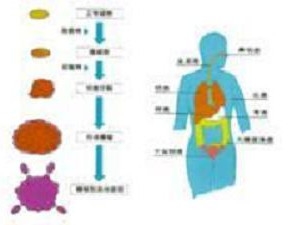
Today on Congressional Moment During the first 30 years of the 20th century, America became a safer and healthier place.
20世紀頭30年的今天,美國成為了一個更安全、更健康的地方。
Living conditions improved, causing many diseases to almost disappear.
住房條件得到改善,同時很多疾病也在消失。
One exception to this pattern was cancer, and in 1937 Congress established the National Cancer Institute.
這種模式下的一個例外就是癌癥。1937年國會成立了國家癌癥研究院。
By 1970, cancer had become the nation's second leading cause of death.
直到1970年,癌癥已經成了美國第二主要的致死因素。
Texas Senator Ralph Yarborough sought to make its conquest a national priority.
德克薩斯州參議員Ralph Yarborough試圖去征服國家的這一大難題。
He led a group of medical experts, cancer advocates, and business leaders who explored the issue.
他帶領著很多醫(yī)療專家,癌癥提倡者和商業(yè)領袖共同探討這個問題。
They became commonly known as the "Yarborough Commission."
他們成為眾所周知的“Yarborough委員會”。
The Yarborough Report became the blueprint for the National Cancer Act, which was signed into law in 1971 by President Richard Nixon.
《Yarborough報告》成了國家癌癥法案的藍圖,1971年由理查德·尼克松總統簽署成為法律。
The National Cancer Act provided additional funding for the National Cancer Institute, establishing 15 new cancer research centers, local cancer control programs, and an international cancer data research bank. Its passage received a boost when popular columnist Ann Landers encouraged a flood of mail from her readers, urging representatives to vote for the bill.
國家癌癥法案向國家癌癥研究所提供額外的資助,幫助其建立15家新的癌癥研究中心,癌癥控制項目和一個國際癌癥數據研究銀行。流行專欄作家Ann Landers鼓勵讀者大量來信,力勸眾議院投票支持該法案,從而推動了這項法案的通過進程。
The goal for a simple cure for cancer remains elusive.
癌癥的簡單治療法仍然具有不確定性。
But scientific knowledge about cancer continues to grow.
但是有關癌癥的科學知識正在不斷增長。
New techniques for detection, diagnosis, and treatment are constantly emerging, as a result of efforts of Congress and the American people.
由于國會和美國民眾的努力,檢測,診斷和治療的新技術都在不斷地涌現。











